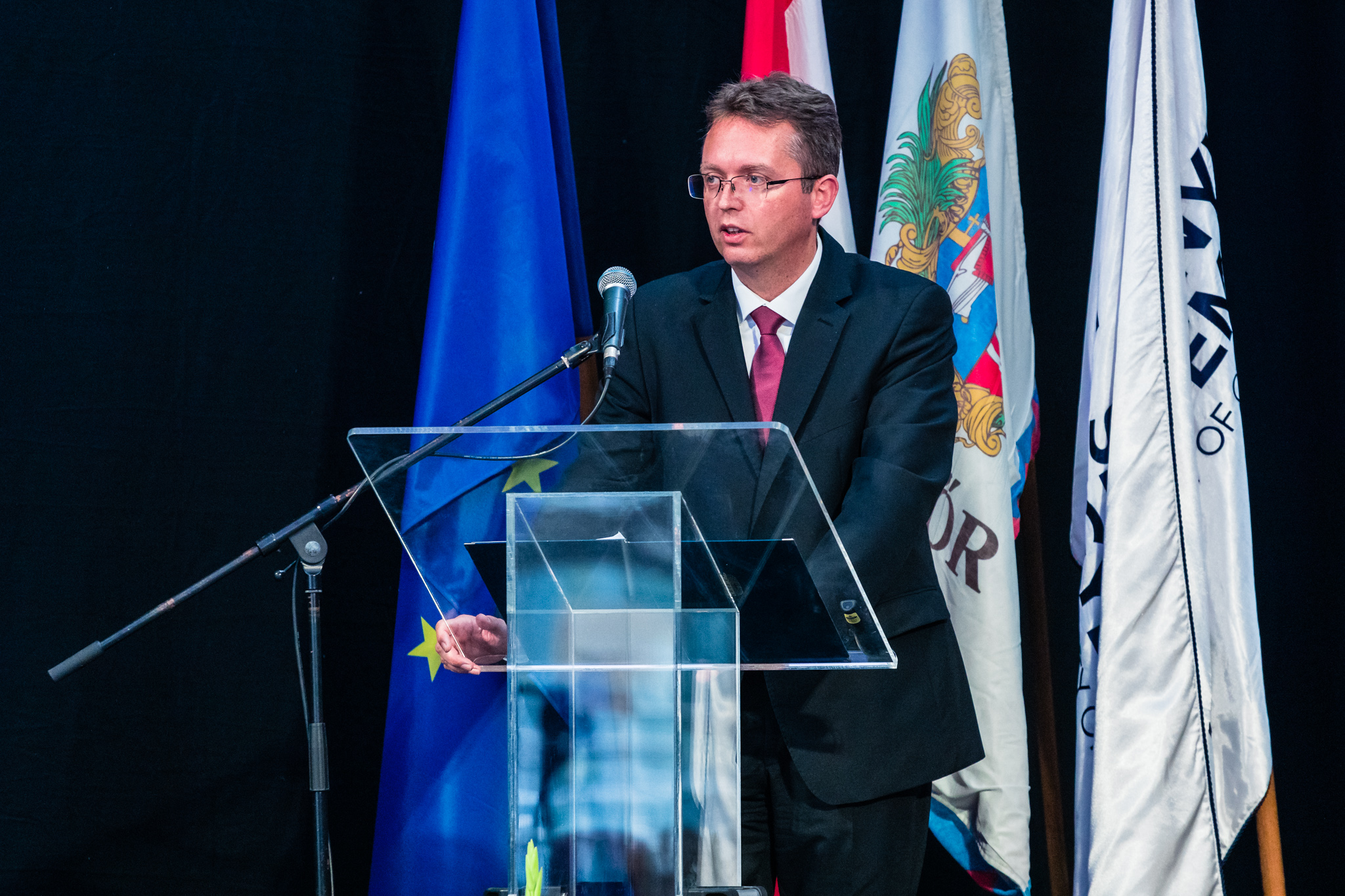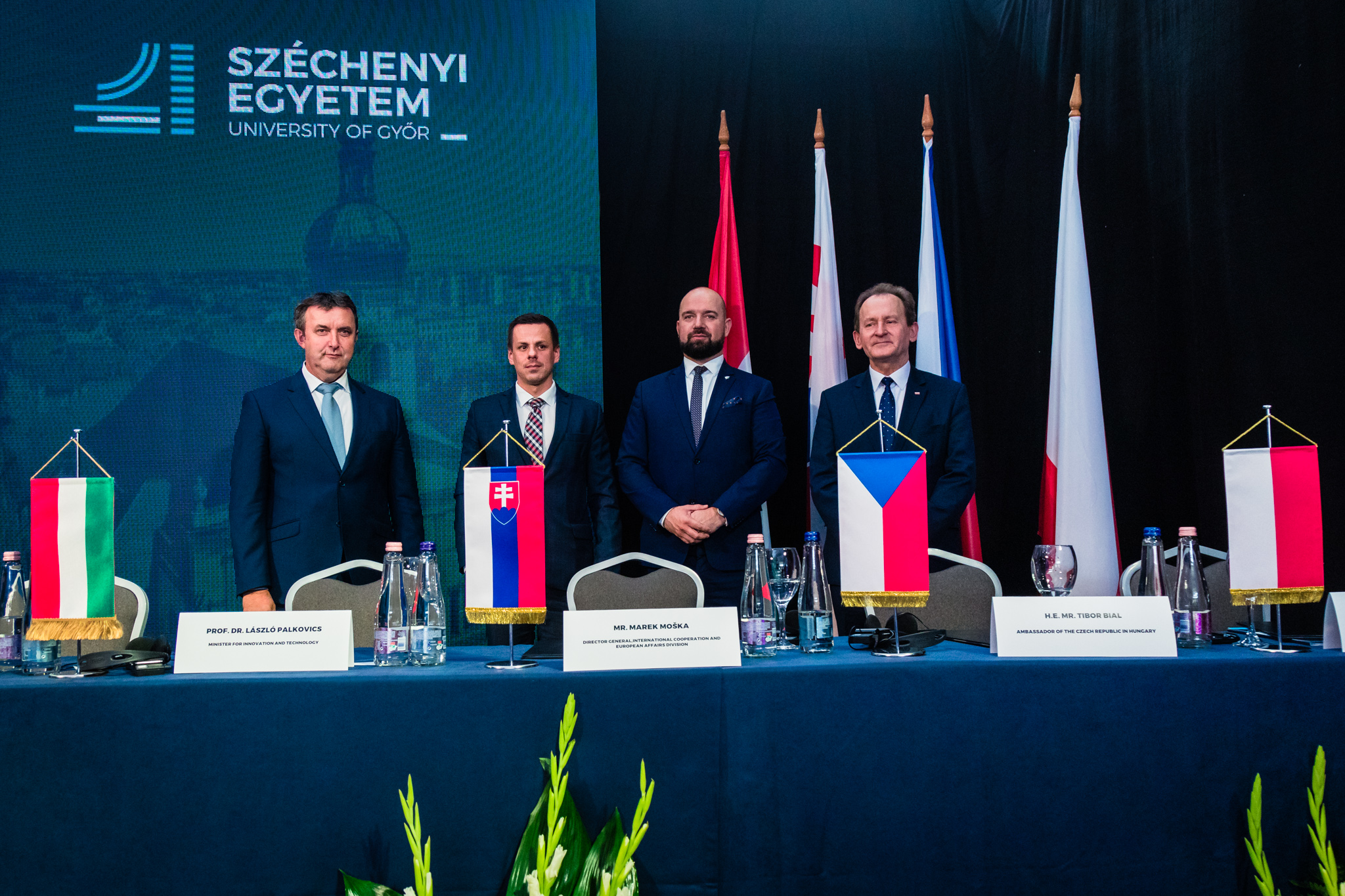Széchenyi University hosts V4 summit - the goal is the automatic mutual recognition of diplomas
The Ministry for Innovation and Technology and Széchenyi István University jointly hosted the Higher Education Summit of the Visegrad Cooperation countries on Friday. At the event, representatives of Hungary, Slovakia, Czechia and Poland signed a Declaration of Intent on the automatic mutual recognition of higher education qualifications and diplomas.
The Hungarian presidency of the Visegrad Cooperation, having started in summer 2021, will run for one year. Hungary has also set itself the goal of implementing an ambitious higher education strategy. In this context, a Higher Education Summit was held at Széchenyi István University on Friday, with Hungary represented by Minister for Innovation and Technology Dr László Palkovics, Slovakia by Mr Marek Moška, Director General, International Cooperation and European Affairs Division, Poland by Deputy Minister and State Secretary for Education Dr Włodzimierz Bernacki, and the Czech Republic by H.E. the Ambassador to Hungary, Mr Tibor Bial. During the event, the four politicians signed a Declaration of Intent on the mutual automatic recognition of higher education qualifications and diplomas in the V4 countries.
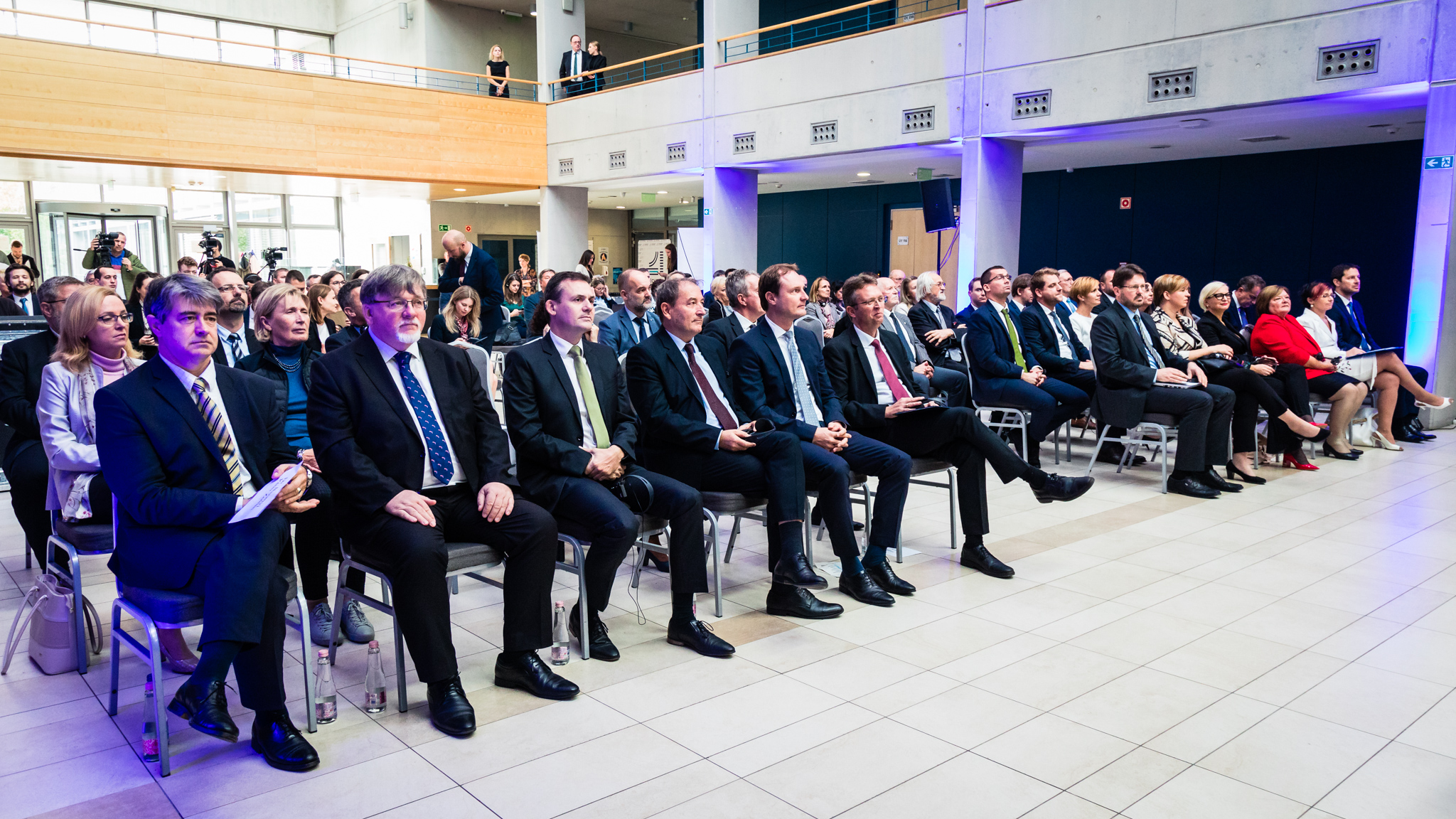 |
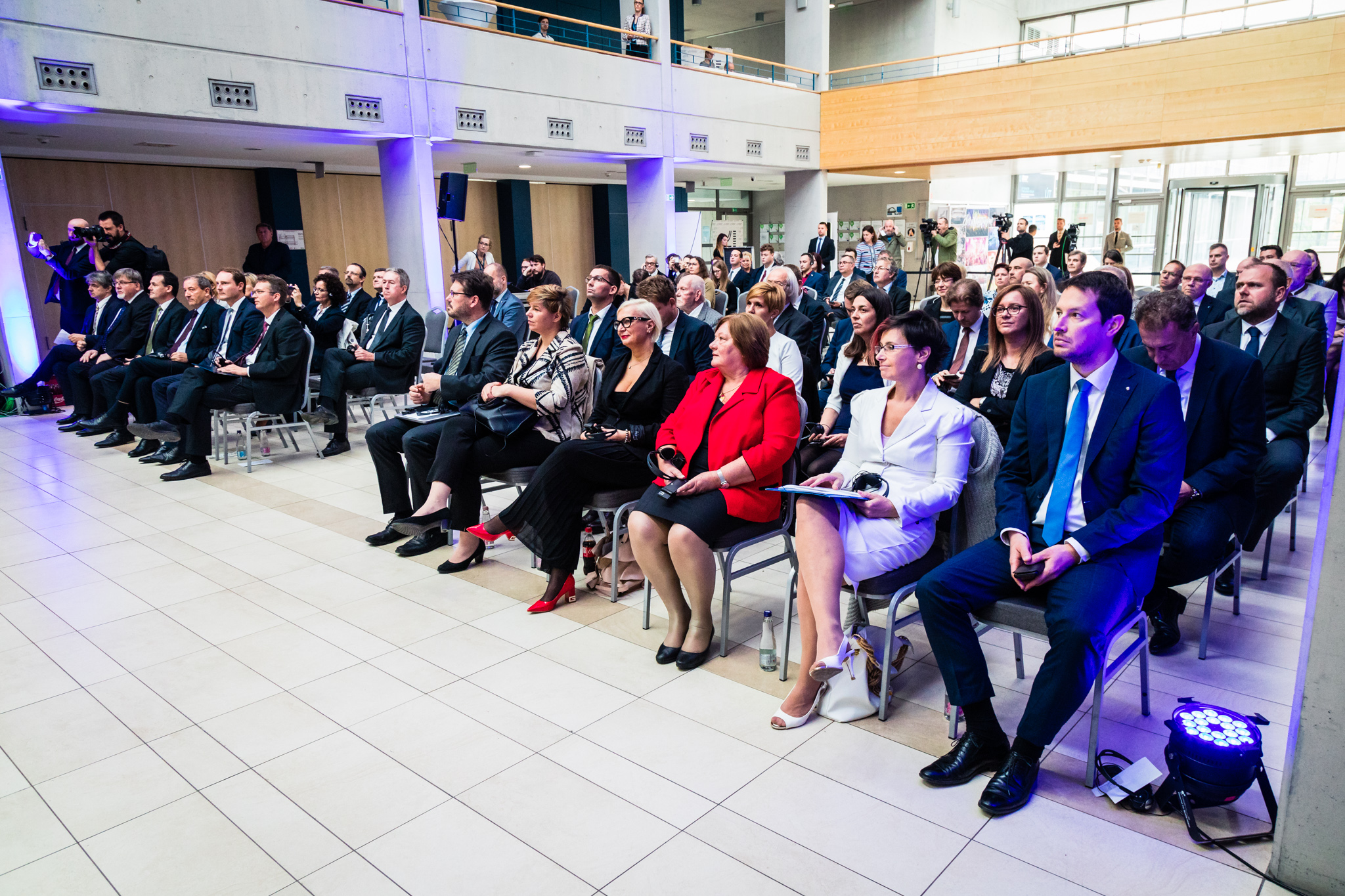 |
The event held in the aula of Széchenyi István University, was attended by representatives of the Ministry for Innovation and Technology, the University, the region and the Hungarian Higher Education sector. (Photo by József Csaba Májer)
Dr Eszter Lukács, Vice-Rector for International Affairs at Széchenyi István University, the host institution, and Chair of the International Committee of the Hungarian Rectors' Conference, said in her welcome speech that the declaration not only promotes student mobility and labour market harmonisation between the four countries, but also strengthens cooperation between higher education institutions in joint projects, research and scientific publications, making them more attractive and globally visible. She added that Széchenyi University has 60 cooperation and Erasmus+ exchange agreements with Visegrad partners and is involved in 11 projects with institutions from the three other countries. There are 229 students from Slovakia, Poland and the Czech Republic currently enrolled at The University of Győr, with several studying on one of the 35 English-taught courses.
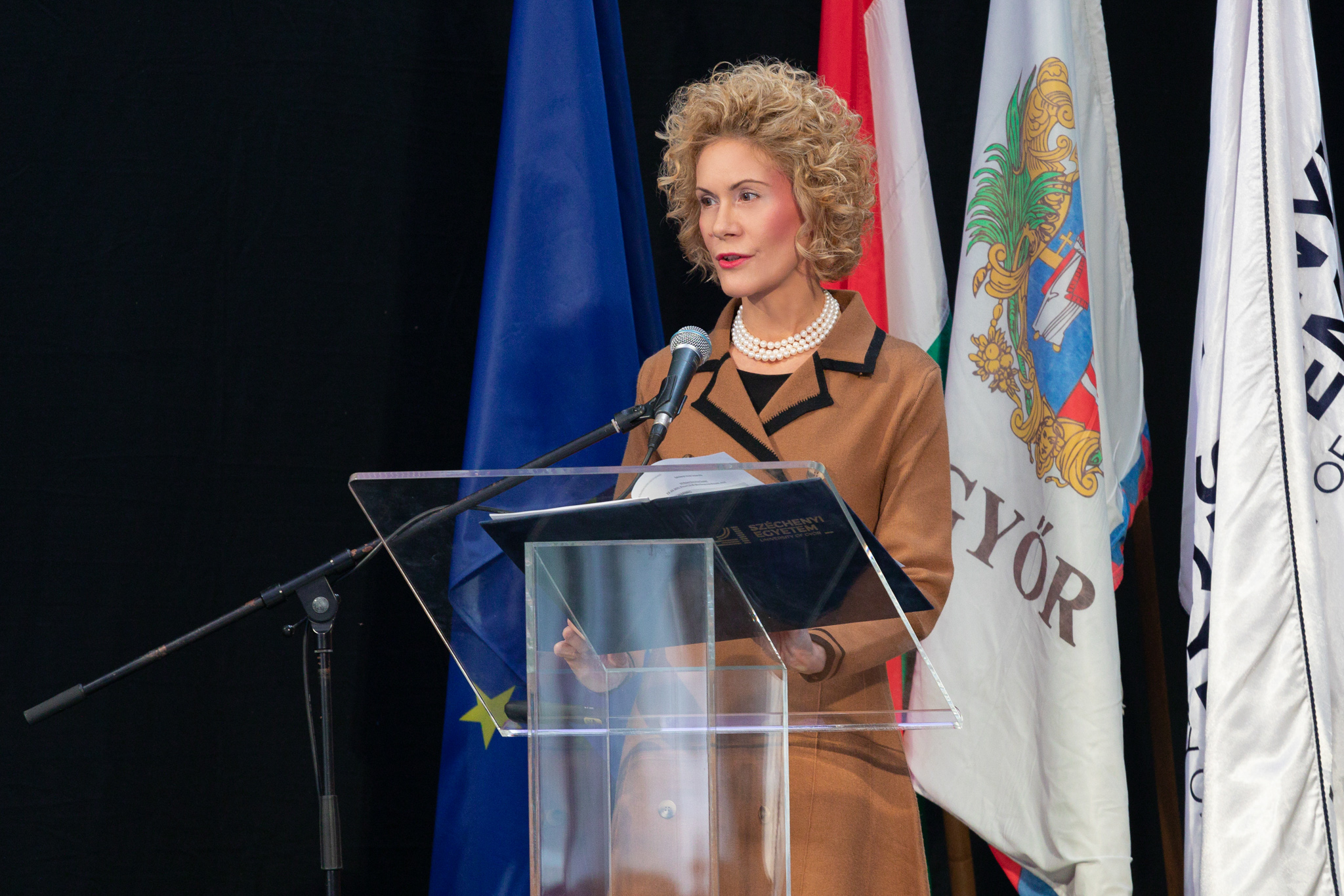
In his speech, the Minister for Innovation and Technology, Dr László Palkovics, said that cooperation in higher education between the V4 countries is good, but can be further improved. To this end, the Hungarian V4 presidency has set the goal of strengthening university relations. He underlined that the Hungarian government in 2014 decided to reform higher education with the aim of bringing institutions closer to economic stakeholders. He also stressed that another key objective was to make higher education more international.
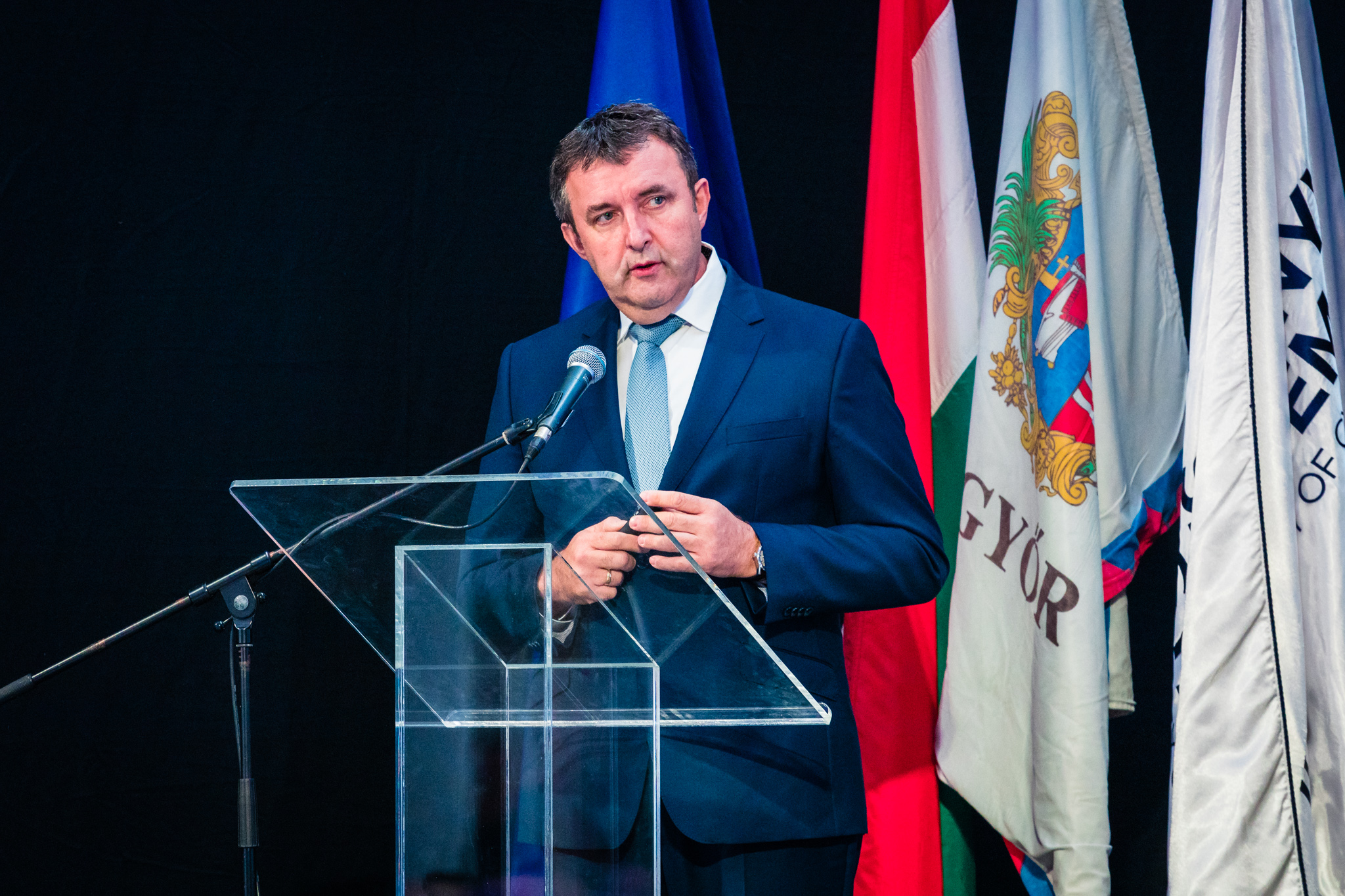
Dr Palkovics recalled that in recent years, as a first step, the research system had been restructured, followed by a second phase of institutional restructuring. He noted that 21 universities currently operate under a foundation funding structure, following the model of private universities in Finland, Austria and other countries.
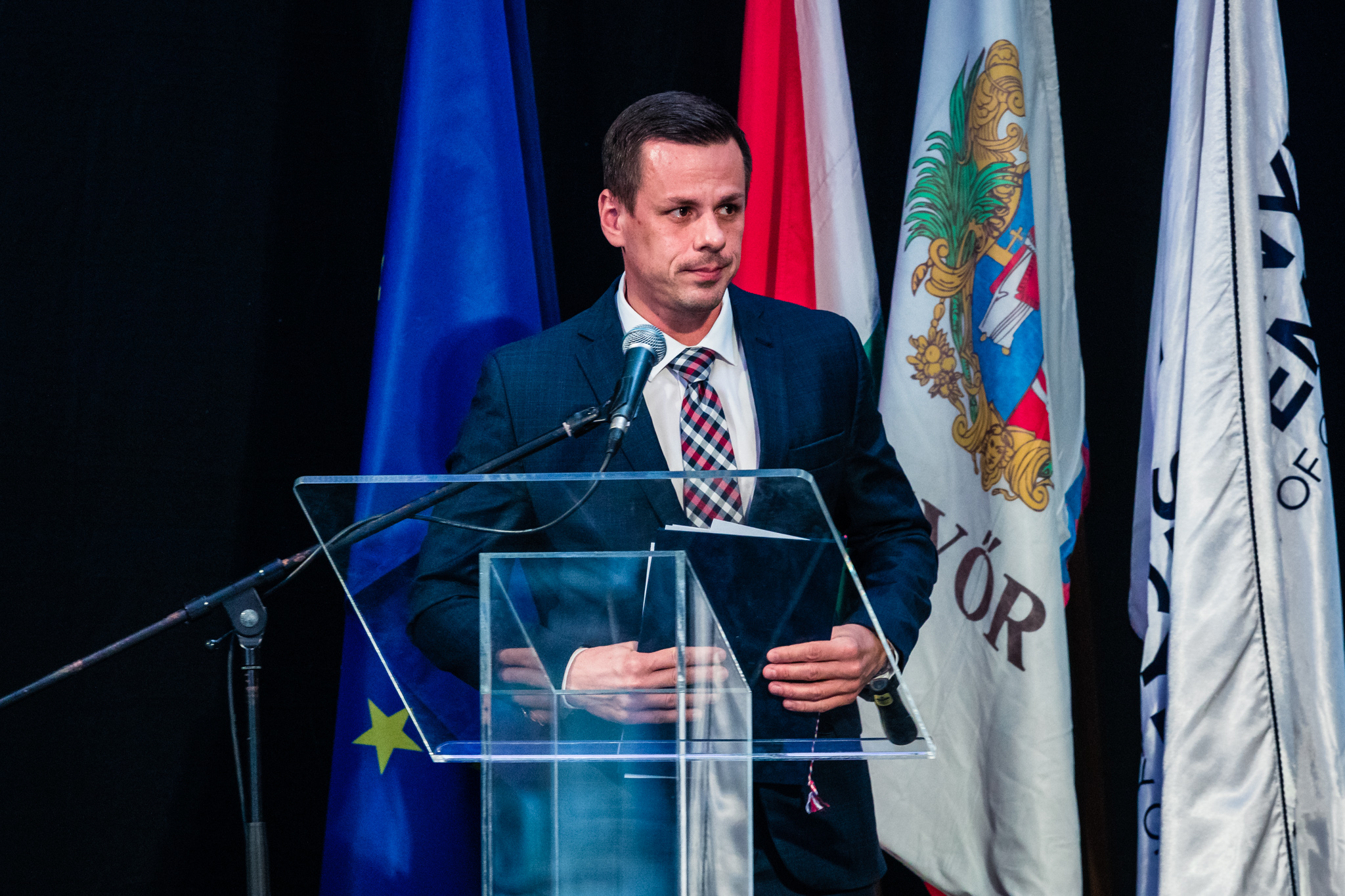
Director General Marek Moška explained that Slovakia has signed a bilateral agreement with the Czech Republic to mutually recognise each other's degrees. At the same time, Hungarian and Polish higher education qualifications need to be recognised, but now an easier procedure has been set up. Future improvements in these processes will lay the foundations and contribute to the creation of a European education area by 2025, he emphasized.
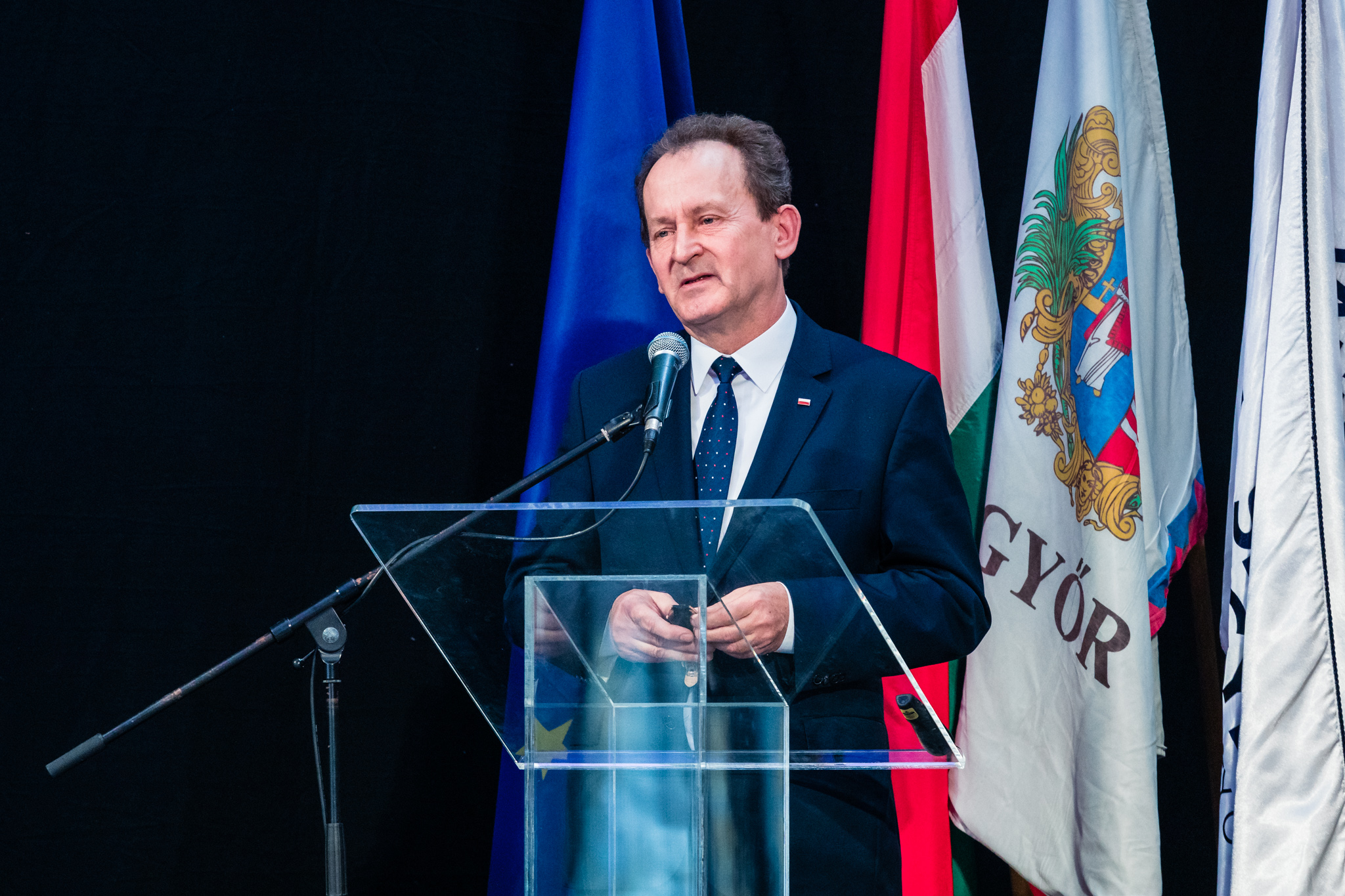
Dr Włodzimierz Bernacki stressed that young people are "the wealth of the nation" and it is therefore important to give them the space to educate themselves. Ambassador Tibor Bial pointed out that one of the main objectives of the Czech Ministry of Education is to achieve automatic recognition of qualifications from EU Member States, but this is a difficult task, with many administrative problems and complex requirements to be met. He added that the Czech ministry is developing a plan for higher education institutions, to support them in developing automatic recognition rules.
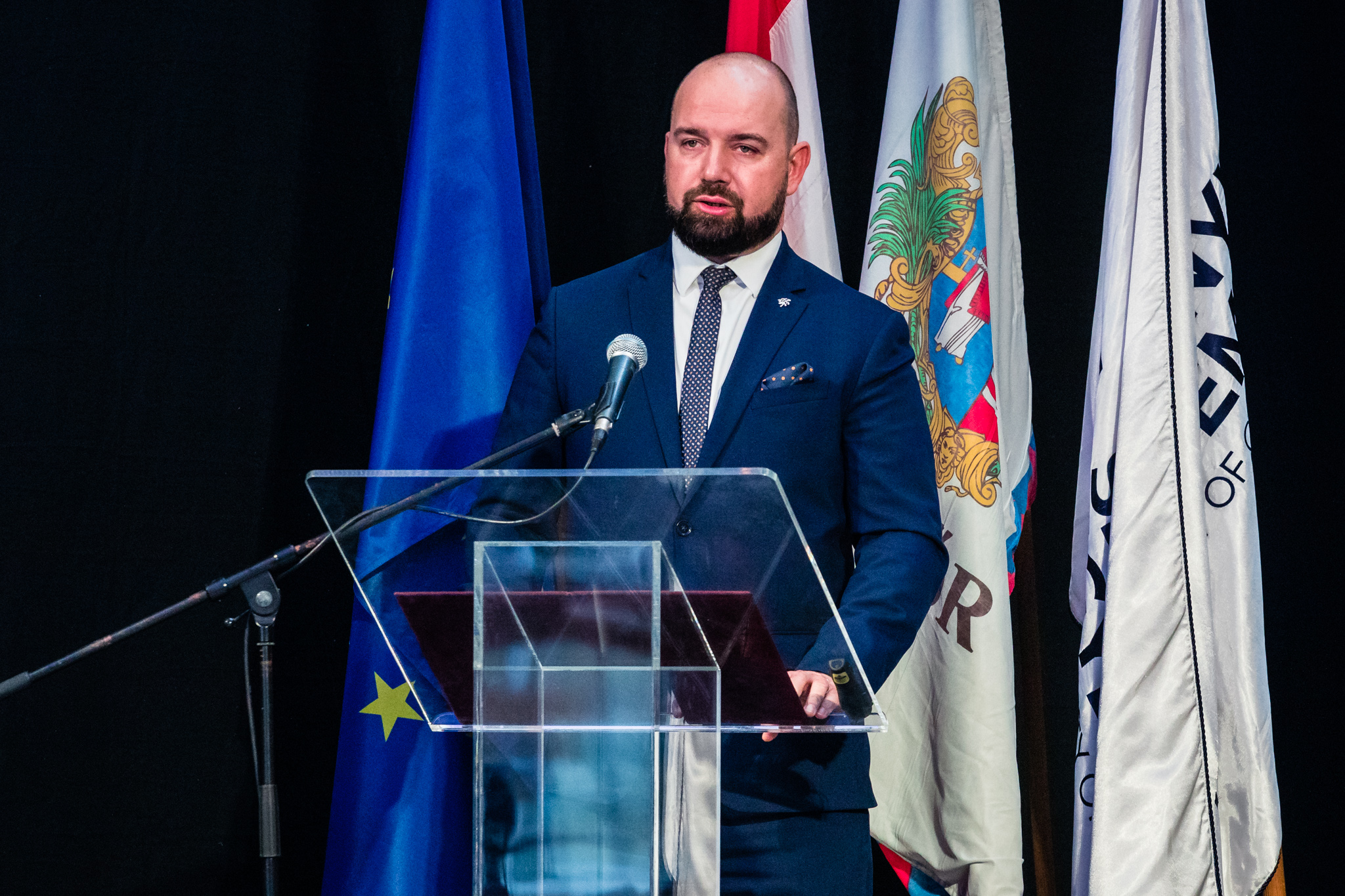
Dr László Palkovics, Mr Marek Moška, Ambassador Tibor Bial and Dr Włodzimierz Bernacki following the ceremony of the signing of the Declaration of Intent (Photo: Csaba József Májer)
At the summit, the V4 Hungarian Presidency's higher education strategy was presented by Deputy State Secretary Balázs Hankó, Dr Valéria Csépe, President of the Hungarian Accreditation Commission, Dr Renáta Vanó, Vice President of the Education Authority and Mr Szabolcs Bokodi, Director of Higher Education at the Tempus Public Foundation.
